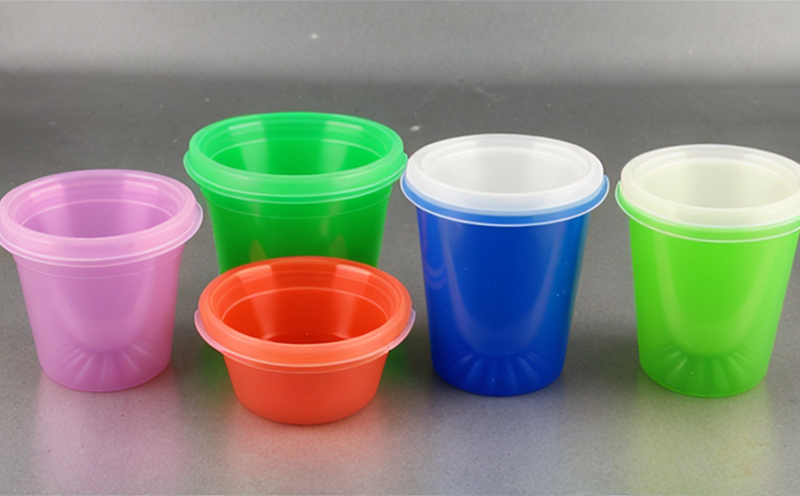DIN EN 1183 Disposable Plastics Heat Resistance Testing
The DIN EN 1183 standard is a crucial benchmark in the evaluation of disposable plastics' heat resistance. This test assesses how well plastic materials withstand high temperatures without degrading, melting, or losing structural integrity. The standard is widely used across various sectors including healthcare, food and beverage packaging, and consumer goods to ensure product safety and compliance with regulatory requirements.
The testing process involves subjecting the disposable plastics to a series of temperature cycles that simulate real-world conditions. This includes initial heating at specified temperatures followed by rapid cooling or exposure to hot water. The specimens are then evaluated for any changes in form, function, or chemical composition that might indicate thermal degradation.
The DIN EN 1183 test is particularly important for materials used in single-use applications such as medical devices, food packaging liners, and disposable cups. Compliance with this standard ensures that these products meet the highest safety standards and can be trusted to perform reliably under expected environmental conditions. This testing process helps manufacturers identify potential issues early on, ensuring they can make necessary adjustments before product launch.
For accurate results, it is essential to follow precise specimen preparation procedures outlined in the standard. This includes ensuring consistent thickness, shape, and size of samples for uniform heating rates during tests. Proper calibration of equipment such as ovens or water baths used in the testing process also plays a critical role in achieving reliable outcomes.
The results from DIN EN 1183 heat resistance tests provide valuable insights into various aspects of disposable plastic performance, including thermal stability, melt flow behavior during heating cycles, and overall durability. These data points help guide continuous improvement efforts aimed at enhancing product quality while maintaining cost-effectiveness throughout manufacturing processes.
| Industry Sector | Application |
|---|---|
| Healthcare | Evaluation of single-use medical devices like syringes and IV bags. |
| Food & Beverage Packaging | Determining the safety of food-contact materials under extreme temperature conditions. |
| Consumer Goods | Assessing durability and safety of disposable items such as cups, plates, and cutlery. |
Why Choose This Test
- Ensures compliance with international regulatory requirements for disposable plastics.
- Identifies potential weaknesses in material design before they become costly issues at later stages of production.
- Enhances reputation by demonstrating commitment to product safety and sustainability.
- Facilitates smoother supply chain operations through consistent quality assurance standards.
International Acceptance and Recognition
DIN EN 1183 is internationally recognized for its stringent criteria and rigorous testing protocols, ensuring that disposable plastics meet global safety standards. This standard enjoys widespread acceptance across Europe but also holds significant relevance in other regions due to its comprehensive approach.
- EU directives mandate compliance with DIN EN 1183 for certain types of disposable plastic products.
- The United States Food and Drug Administration (FDA) references similar standards when assessing the safety of single-use medical devices made from plastics.
- Asian markets, including China and India, incorporate this standard into their national regulations governing the use of heat-resistant materials in consumer goods.





